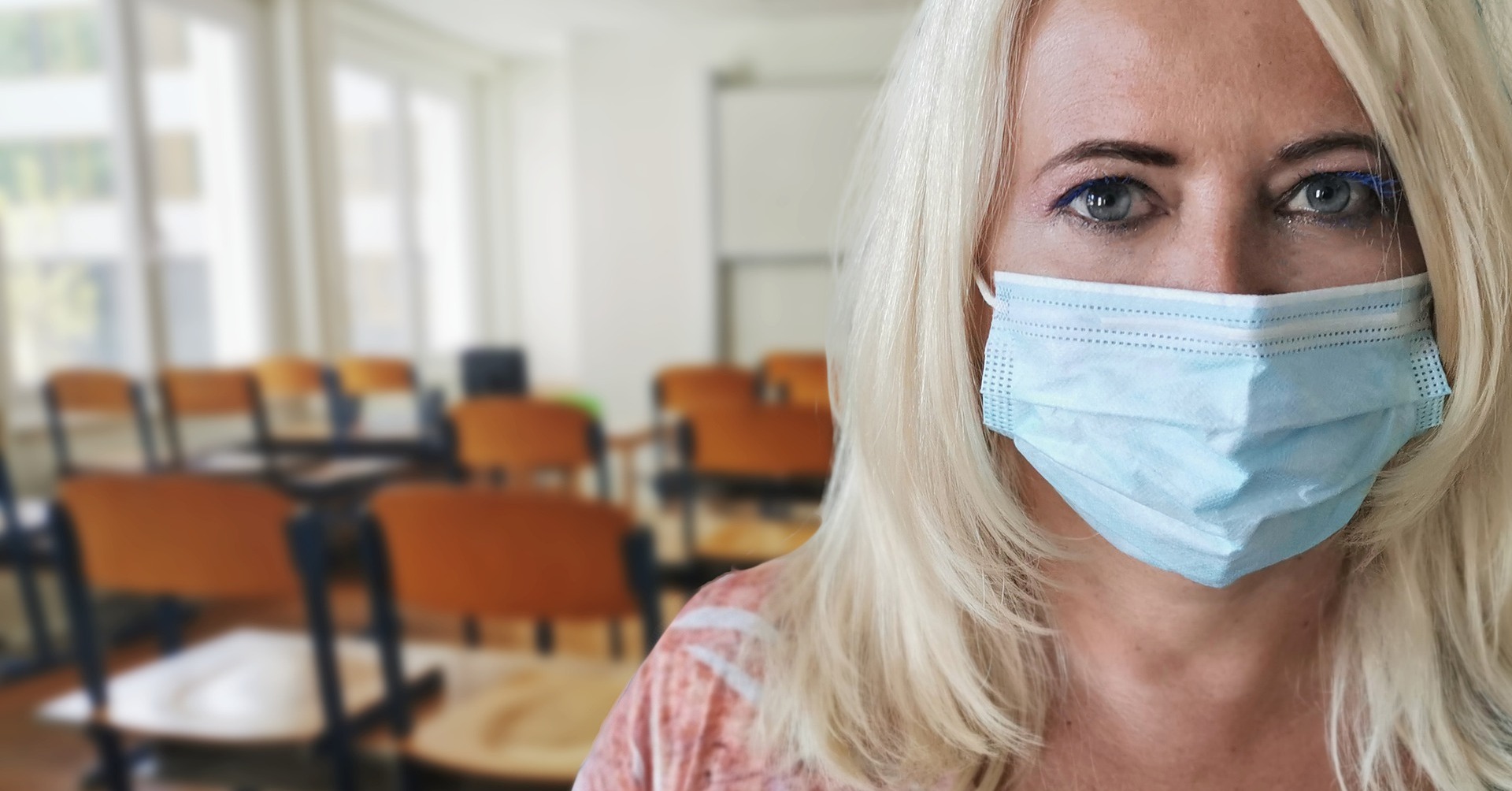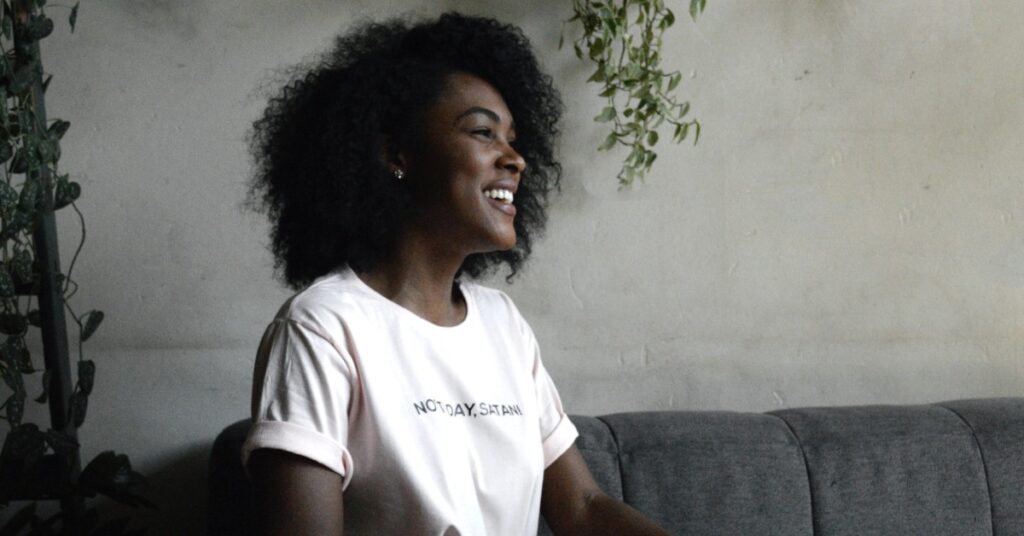
Why Women School Principals Matter
Women in school leadership roles foster collaborative environments. They're also [...]

In its stated ideals, professional social work strives for justice, advocacy, compassion, and opposition to oppression. Historically, the field has not always risen to its lofty objectives. Sadly, racism has been part of both the theory and practice of social work since the modern foundations of the discipline were laid in the late 1800s and early 1900s.
It hasn’t always been overt; institutional racism and unintentional racism have also shaped the social work profession in the United States. Consider, for example, how Black people—along with Indigenous people and other people of color—are often more rigorously scrutinized when applying for social services or when the a child’s welfare is called into question.
Racism has also played a role in the evolution of social work education. It’s telling that even though racial equality is an essential part of social work, the word “race” appears in only 10 percent of the mission statements of the top-ranked schools of social work in the US.
That isn’t to say that the more than 800 Council On Social Work Education-accredited bachelor’s degree, master’s, degree and doctoral degree programs in social work aren’t doing their part to welcome Black social work practitioners or educate social workers who understand and respect cultural and ethnic diversity. It’s just that historically Black colleges and universities (HBCUs) traditionally do more. They’ve been—and continue to be—nexuses of activism, empowerment, and social justice. The learning environment at these institutions tends to be inclusive and supportive. And HBCU scholars have led the social work profession in innovation. Consequently, HBCU MSW programs tend to be a great fit for students who are passionate about social justice.
In this article about HBCUs with Master of Social Work Programs, we cover:
Historically Black colleges and universities are higher educational institutions established before the Civil Rights Act of 1964. Many were founded soon after the Civil War and during the long period during which schools could legally limit minority enrollment or completely bar Black students and other students of color. HBCUs were often the only institutions where they could earn the academic credentials necessary to launch professional careers.
Historically Black colleges and universities still play an important role in higher education. Discrimination, bias, and prejudice haven’t been eliminated; structural inequality still exists in colleges and universities. HBCUs continue to provide a haven where Black students and other students of color can thrive. That said, these schools have traditionally accepted students from all races, and today, their diverse student bodies include students of all backgrounds.
| University and Program Name | Learn More |
|
Virginia Commonwealth University:
Online Master of Social Work
|
The 64-credit hour master’s-level social work education program at Albany State University focuses on advancing social and economic justice and enhancing historically oppressed populations’ dignity and rights. The program is designed for working adults. All classroom instruction takes place after 5:15 pm, and students have four years to fulfill degree requirements. Core courses in the Albany State University MSW program include:
The 100 percent online MSW program at Delaware State University—the only social work-focused graduate program in Delaware—allows students to earn this degree without spending any time on-campus, whether they are enrolled in the 60-credit hour standard track or the 30-credit hour advanced standing track. The traditional MSW program takes two years of full-time study to complete; a part-time option takes three to four years. Advanced standing MSW students can complete the program in a single year.
Both tracks emphasize experiential learning. Degree candidates complete two student-selected internship practicums in which they gain experience working with individuals, families, groups, organizations, and communities. Faculty-student collaboration is strongly encouraged. Core courses in the program include:
The Fayetteville State University MSW program focuses on the “unique needs of people in Black families, neighborhoods, and communities.” Master of Social Work options at this school include a full-time, two-year MSW, a part-time weekend MSW with classes on Friday evenings and Saturdays, and a one-year advanced standing MSW. FSU also offers a 12-credit hour Graduate Certificate in Substance Abuse Studies, an 18-credit hour Graduate Certificate in Military Behavioral Health, and a 21-credit hour Certificate in Advanced Clinical Practice.
This program prioritizes on-campus networking. Students enrolled in FSU’s MSW program can join the university’s MSW Student Association, a student-led organization that helps state, county, and local governments implement social, economic, and political programs. There is also an on-campus chapter of Phi Alpha, the national honor society for social work students, as well as a student chapter of the National Association of Black Social Workers.
This 67-credit hour program focuses on advancing social and economic justice through “social service administration, program planning and evaluation, policy analysis and advocacy, and community practice designed for diverse populations.” Florida A&M University prepares students to work toward the elimination of poverty, oppression, and discrimination—especially among people and communities of color. Options include both a part-time and full-time MSW. Regardless of which format they choose, students complete a minimum of 900 hours of fieldwork. Core MSW classes include:
The Black Perspective is one of Howard’s School of Social Work’s guiding values, and the school’s MSW graduate studies program “emphasizes the delineation of ways in which the strengths of African Americans can be used to respond to oppressive and discriminatory systems.” Howard University offers both a 60-credit hour standard social work master’s and a 45-credit, three-semester advanced standing social work master’s. The standard MSW can be completed in two years by full-time students. The School of Social Work also offers a three- or four-year, part-time MSW option with evening classes for working professionals. Part-time MSW candidates can develop an individualized course of study with the help of an advisor. Foundational courses in Howard’s MSW program include:
From there, the MSW curriculum is guided by each student’s chosen concentration and whether they have opted into one of Howard’s dual degree programs. Concentrations include direct practice and community, administration, & policy practice. Howard’s MSW program is one of the few HBCU Master of Social Work programs with dual degree options. These include the Master of Social Work/Master of Business Administration (MBA) and the Master of Social Work/Master of Divinity (MDiv).
Field instruction is an important part of the MSW experience at Howard University. Students spend 16 hours per week in year one and 20 hours per week in year two working for social services agencies in the greater Washington, DC metropolitan area. Fieldwork credit hours account for more than one-third of the credits required for the completion of the MSW degree program. US News & World Report ranks Howard’s MSW program among the nation’s top 25.
This Georgia-based MSW program located just outside Atlanta prepares students to work with children, youth, and families in urban and rural areas. The program, which includes full-time, part-time, and advanced standing pathways, emphasizes that confronting discrimination and oppression is a part of social work. JSU also offers a 100-percent-online program for aspiring social workers who can’t take time away from work and family to earn a degree. Core courses include:
This school stands out for its varied elective options, which include:
Students in this MSW program are from day one guided by an advisor, with whom they work closely to discover their motivations and strengths, develop academically and professionally, meet deadlines and benchmarks, and choose electives supporting their long-term goals.
The on-campus and online MSW degree programs at Morgan State University focus on preparing students to address “issues of poverty and socioeconomic disadvantage, interpersonal and community violence, substance abuse and mental health problems, social injustice and discrimination” in minority communities. Students can choose between a 60-credit hour standard pathway or a 30-credit hour advanced standing pathway, whether they take classes on-campus or online. Distance learners can also choose one of two concentrations: urban children, youth, and families, and addictions. The School of Social Work faculty conducts research into issues facing people in urban communities; students benefit from their expertise. The school also regularly shares professional opportunities with students via its website.
Norfolk State University offers a two-year full-time MSW, a three-year extended MSW for select students, and a one-year advanced standing MSW. The curriculum in the 60-credit hour full-time and part-time programs includes five sequences: Social Work Practice Methods, Human Behavior in the Social Environment, Social Welfare Policy, Research Methods, and the Field Practicum (which begins in the first semester). Core classes in the MSW program include:
This MSW program focuses on clinical practice. Students can choose from three tracks: military social work, school social work, and child welfare.
North Carolina A&T’s Joint Master of Social Work (JMSW) program is offered in partnership with University of North Carolina at Greensboro. Master of Social Work candidates take classes on both campuses with faculty from both schools, have library and parking privileges on both campuses, and receive diplomas with both schools’ seals. The program, which is intensive and designed for full-time students, prepares students for multicultural clinical practice. Core classes include:
The average MSW tuition is about $14,000 per year at public liberal arts institutions and $36,000 per year at private colleges and universities. HBCUs with Master of Social Work programs tend to charge less. When they don’t, they typically offer more financial support than PWIs. Albany State University, Delaware State University, and Fayetteville State University all charge students eligible for in-state tuition less than $6,000 per year.
Students enrolled in the above degree programs can access the usual forms of financial aid, including student loans, scholarships, and grants. There are also fellowships available for MSW students through organizations such as the National Association of Social Work. Many HBCUs offer tuition assistance in the form of awards, graduate assistantships, teaching assistantships, research assistantships, fellowships, scholarships, and work-study opportunities. Jackson State University, for example, issues tuition waivers to select graduate students each year, along with assistantships that cover tuition and give students a monthly stipend.
Black students enrolled in HBCUs have a fundamentally different experience than those enrolled in PWIs. Historically Black colleges and universities tend to be more willing to accept low-income and first-generation applicants, as well as applicants who need a little help catching up to their peers academically. The atmosphere tends to be supportive and cooperative, even at top HBCUs that could easily adopt the kinds of dog-eat-dog policies that inspire competition among students at other schools. A Gallup study found that Black students also received more encouragement from faculty at HBCUs.
Historically Black colleges and universities can be a budget-friendly option. While tuition at HBCUs isn’t always significantly lower than at predominantly white higher education institutions, they tend to provide more scholarships and other forms of financial support. “HBCUs have a long history of educating exceptionally promising students from under-resourced families,” says Elwood L. Robinson, chancellor of Winston-Salem State University and an HBCU graduate. “This has given HBCUs an advantage in narrowing the academic success gap and improving social mobility.”
Most importantly, POC enrolled in HBCU MSW programs are more likely to feel seen. This is especially important given the possibility that they will experience some bias and discrimination later in their careers. The NASW conducted interviews with social workers of color in major cities as part of a study on institutional racism in social work; several interviewees reported having their perspectives and concerns treated as unimportant in the workplace. A degree from an HBCU can’t shield Black, Brown, and Indigenous social workers from bias and discrimination, but might serve as a reminder that their voices matter and change is possible.
Questions or feedback? Email editor@noodle.com

Women in school leadership roles foster collaborative environments. They're also [...]

Principals do more than administer discipline. Through hiring, curriculum oversight, [...]

The National Aspiring Principals Fellowship provides a gateway to educators [...]

Social work podcasts are an effective way for social work [...]

Earning a master's degree in homeland security can qualify you [...]
Categorized as: Social Work, Social Work & Counseling & Psychology